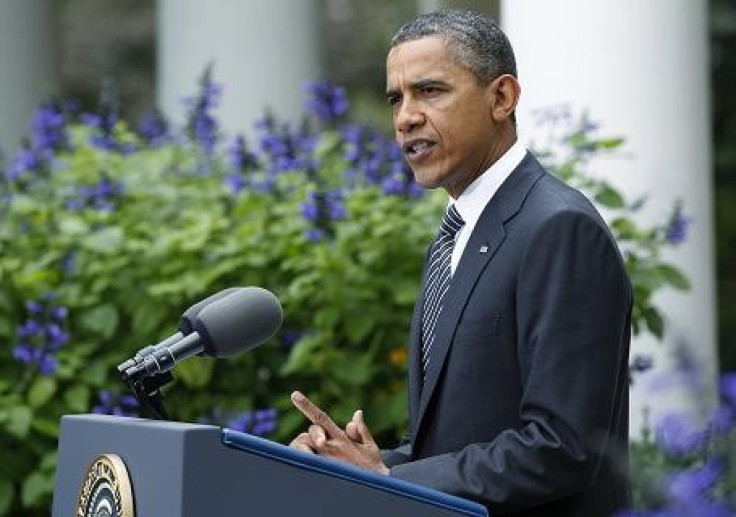Gadhafi Dead: When It Comes to Removing Tyrants, Obama Is 2-0
Opinion

When Libyan Prime Minister Mahmoud Jibril announced Moammar Gadhafi's death Thursday, he began with the words: We have been waiting for this moment for a long time.
It must have done many a heart good: It never hurts to be reminded that justice exists, and that it can only be served, in state matters, if it first resides in the hearts of the citizens. In this case, it did. It absolutely did.
Libyan People Said: The Tyranny Must End
The Libyan people decided enough was enough in February, summoning up that resoluteness by watching the uprisings in Tunisia and Egypt. And they succeeded, ending Gadhafi's 42-year reign by pulling him out of a storm drain in his hometown of Sirte, beating him briefly for their sufferings and then killing him. Far lighter treatment than what he bestowed on the Libyan people.
And when the Colonel pleaded for mercy, the revolutionary fighters gave it -- to the people who Gadhafi had so long denied it.
Americans tend to forget that dictatorship is a state of slow-moving war by the rulers against the ruled. And we forget that dictatorships usually end in the deaths of dictators: Mussolini on the lamppost, Hitler in the bunker, Romania's Nicolae Ceausescu at the firing squad, Richard Miniter wrote for The Daily Beast.
Libya is a relatively small country numbering 6.4 million inhabitants. And sometimes, with a huge enemy, you have to call in reinforcements. So there is plenty of credit to be doled out: British Prime Minister David Cameron, France's Nicolas Sarkozy, and our own President Barack Obama.
NATO Intervention Was Not Easy, Politically
Many on the right (and left) urged Obama to sit back, opposing what they deemed a high-risk intervention by the United States; GOP presidential candidates Michele Bachmann, Jon Huntsman and Newt Gingrich all argued against it. Instead, Obama chose a low-key style of foreign policy, not fully submerging U.S. forces while still present in Afghanistan and Iraq, and the policy turned out to be a good one.
What was good about President Obama's cautious, back-seat approach to Libya was that it denied Gadhafi the final, apocalyptic confrontation with the United States that he craved, David Ignatius wrote for The Washington Post. ... It seems fair to say that his vision of opposing Gadhafi through a broad, international coalition -- in which other nations shared the burden, for a change -- worked out pretty well.
Sure, the questions will still be asked: If America had acted sooner, would Gadhafi been ridded earlier? Did keeping a low-profile during the war undermine NATO's efforts? But those are what-ifs.
If that president had sat on the sidelines, the Libyan war might have dragged on for years, Miniter wrote. The result would have been a failed state, mountains of dead civilians, and a tsunami of refugees flooding into Europe -- as we saw during the Lebanese civil war in the 1970s. Thanks to Obama's action, that nightmare was averted.
Today, many liberals and conservatives dogmatically cling to their pre-existing worldview, refusing to give credit where it's due when evidence thrusts that position into question, and, for a moment, ideologues should not ask those questions. Instead, they should look to the future, asking the questions that will guide Libya forward. Certainly, Libya does not have an easy road. Undoubtedly, there will be bumps and wrong turns. But at least, which is not really an at least, Libya gets the chance to build a despot-free country.
© Copyright IBTimes 2024. All rights reserved.











